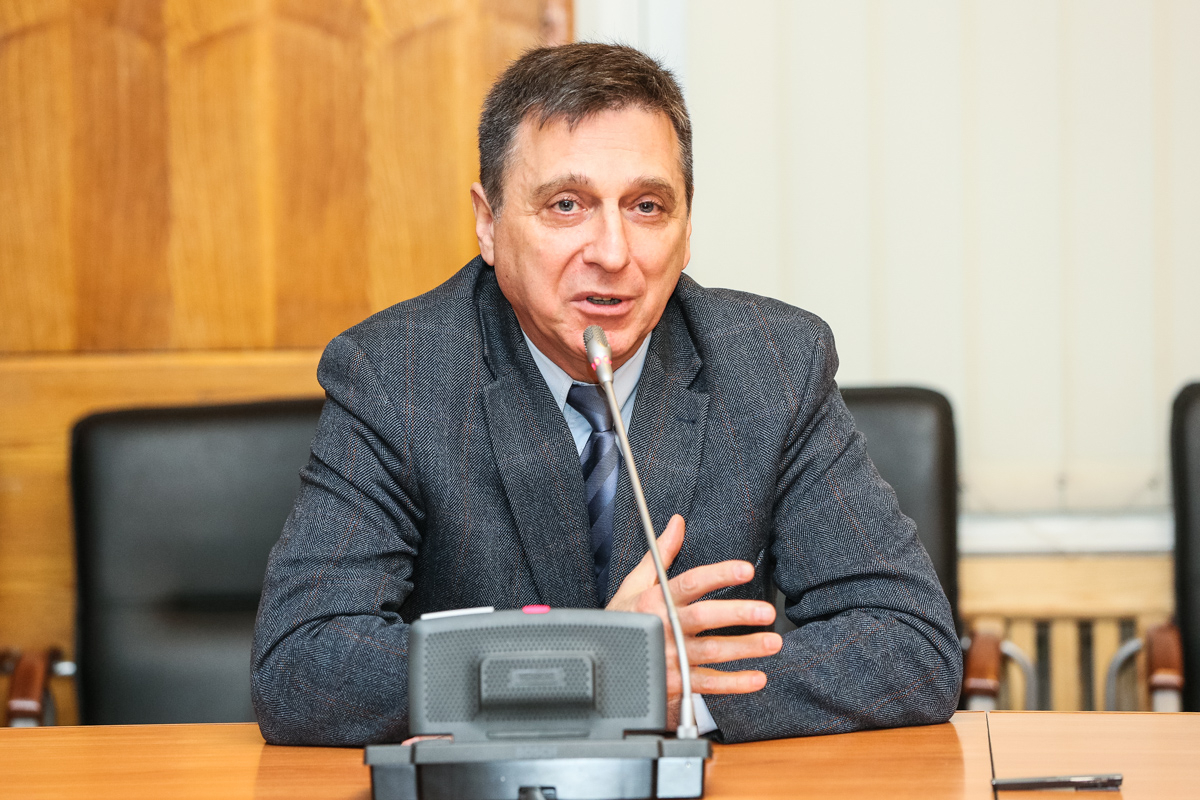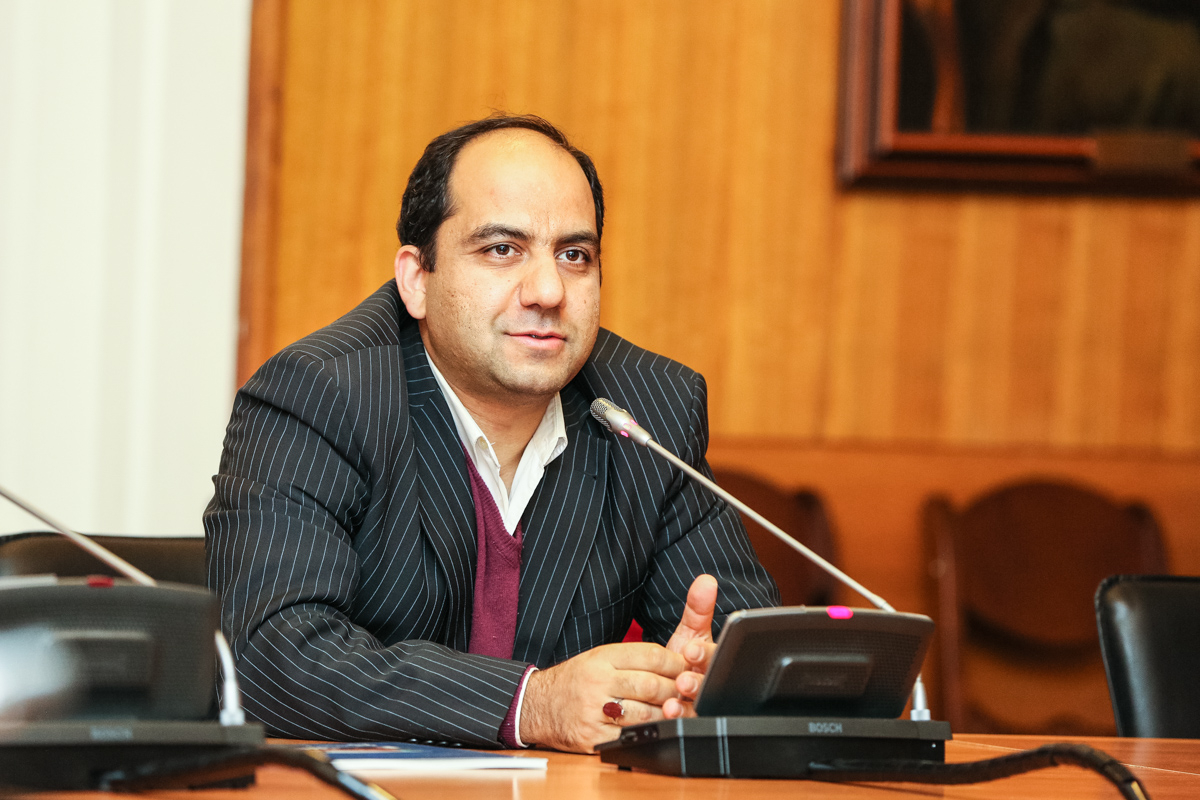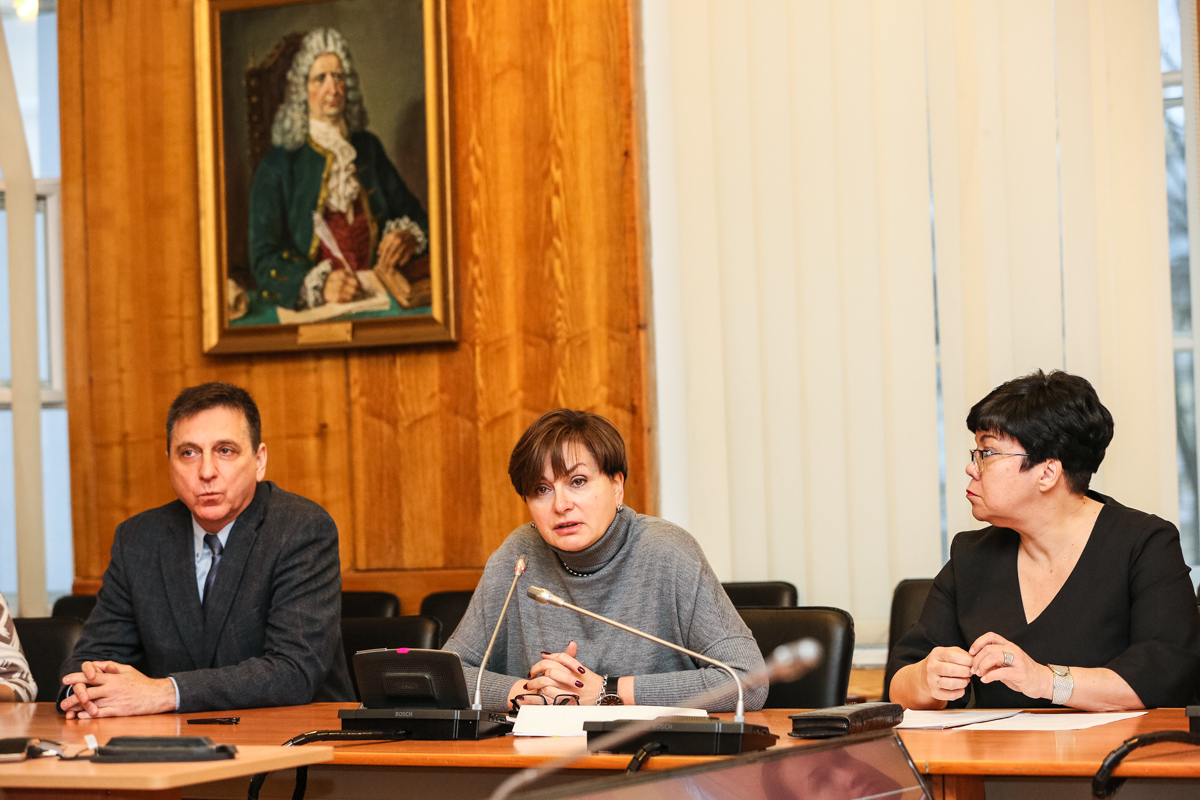Delegation from Sharif University of Technology calls on St Petersburg University
The primary purpose of the Iranian delegation’s visit was to discuss the details of future collaboration between the two universities.
Welcoming the guests, Marina Lavrikova, Senior Vice-Rector for Academic Activities and Teaching Methods, noted that collaboration with universities in Iran was important for St Petersburg University. At the moment, it is developing rapidly, but there is always room for further growth. Sharif University of Technology was founded more than 50 years ago, and today it is one of Iran’s best institutions of higher education in the field of engineering. All the same, over the years, many of its students have been keen to acquire not only technical skills but to receive an education in the humanities as well. So, about twenty years ago, the university set up a new Philosophy of Science Faculty. According to the current dean of this faculty, Azadegan Ebrahim, Sharif University of Technology is eager to collaborate with St Petersburg University, a traditional, comprehensive university that carries out research in virtually all fields. One area of cooperation between the two universities may well turn out to be the establishment of a joint programme in philosophy. This new programme will not be limited to philosophical schools of the East but will also acquaint students with the works of Western thinkers.
Tigran Tumanian, a professor at St Petersburg University and head of the Department of Philosophy and Culture of the Orient, says that he has been discussing the possibility of developing a joint programme with his Iranian colleagues for five years now. Mehdi Sanaei, the ambassador of the Islamic Republic of Iran to the Russian Federation, wishes to strengthen the intellectual ties between the two countries, and he has made a substantial contribution to the partnership efforts.
Iran is a country with philosophical traditions. I would like to turn to a well-known quotation by a prominent Russian scholar of Asian and Islamic studies, Ahatanhel Krymsky, who said that ‘the Arabs give us prophets and the Turks give us warriors, while the Persians give us poets and philosophers’. All medieval Arabic philosophy is, in essence, Persian, so it should come as no surprise that we would like to develop an academic programme that would encompass the entire spectrum of Iran’s intellectual traditions, from the earliest times up to the present day.
St Petersburg University Professor Tigran Tumanian
According to Ms Lavrikova, the St Petersburg University Institute of Philosophy has the full potential to carry out this project. She added that the creation of an academic programme in philosophy could promote cooperation between the universities in other areas, particularly in chemistry and IT.
The academic mobility of students and teachers was also discussed during negotiations between the two sides. In order to overcome the language barrier, a problem typical for international cooperation involving academic programmes, the University is prepared to offer students from other countries an opportunity to enroll in courses of Russian as a foreign language at the St Petersburg University Centre for Additional Education. There is also an intensive online Russian course designed for foreign students who would like to improve their Russian.
At the end of this meeting, St Petersburg University and Sharif University of Technology decided to renegotiate their agreement in order to increase academic mobility. The first exchanges of students and teachers are planned for September of next year.




